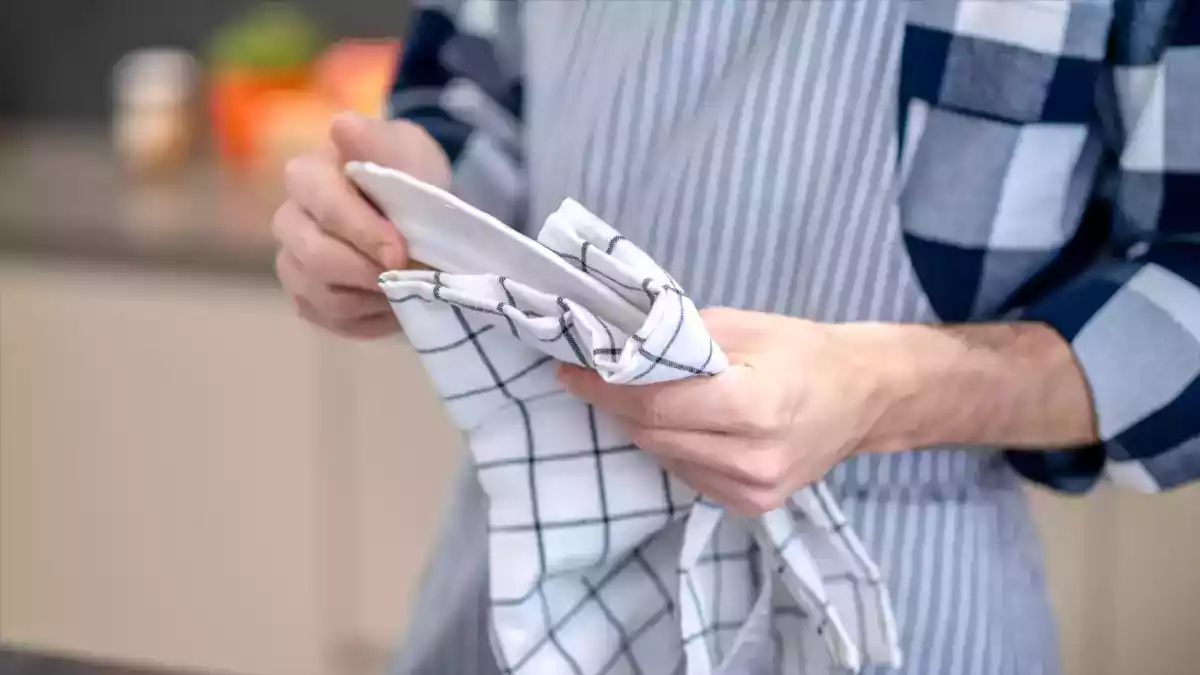How dishcloths can (or can't) contaminate your kitchen

It's always at hand, hanging over the stove or on the cook's shoulder. It's used for wiping, cleaning, holding hot pans... but the dishcloth can be one of the biggest invisible villains in your kitchen. Or not - it depends on how you use it.
After all, does it really contaminate food? Can you keep using it? Let's find out based on studies and good kitchen practices.
Is dishcloth dirty by nature?
No, but it is very easily contaminated.
According to domestic microbiology studies, dishcloths can harbor bacteria such as E. coli, Salmonella and Staphylococcus aureus, especially when used incorrectly, such as:
- Wiping dirty hands
- Wiping up spills from raw meat
- Reusing for days without washing
- Storing damp or poorly dried
Moisture + organic matter (food, fat) = an ideal environment for bacterial proliferation.
How can cloth contaminate food?
Cross-contamination is the biggest risk. A classic example:
- You use the cloth to wipe a board that has had raw meat on it
- Then you use the same cloth to wipe down a bowl of salad.
- The result: bacteria from the meat end up in the raw food, which will not be cooked
This can cause serious food infections, especially in children, the elderly and people with low immunity.
How to avoid contamination with dishcloths?
Just follow a few simple rules, but they make all the difference:
1. have cloths with different functions
- One for wiping dishes
- Another for cleaning worktops
- Another for drying hands
Never use the same one for everything.
2. Change it every day
Even if the cloth doesn't look dirty, it quickly accumulates micro-organisms. Changing it every day (or more if necessary) is essential.
3. Wash properly
- In the washing machine or bucket with hot water
- Use soap and, if possible, a little bleach (on white cloths)
- Dry in the sun, which is a natural bactericide
4. Avoid damp storage
A damp cloth wrapped around a hook or thrown into a corner = a breeding ground for bacteria.
But do you really need to avoid dishcloths?
Not necessarily. If you follow the precautions above, you can continue to use it with peace of mind. Dishcloths only become villains if they are poorly sanitized and misused.
Today, many kitchen professionals use disposable cloths, paper towels or sterilized cloths in rotation. But in the home kitchen, the dishcloth can still be your ally - as long as you treat it like a quasi-medical utensil: clean, dry and well cared for.
Conclusion
The dishcloth isn't the problem. The problem is its misuse. If you want a safer, contamination-free kitchen, start where you least expect it: that nice little cloth that seems harmless.
Change it, wash it, separate its functions - and your kitchen will thank you.
 Mirella Mendonça
Mirella Mendonça
Comments